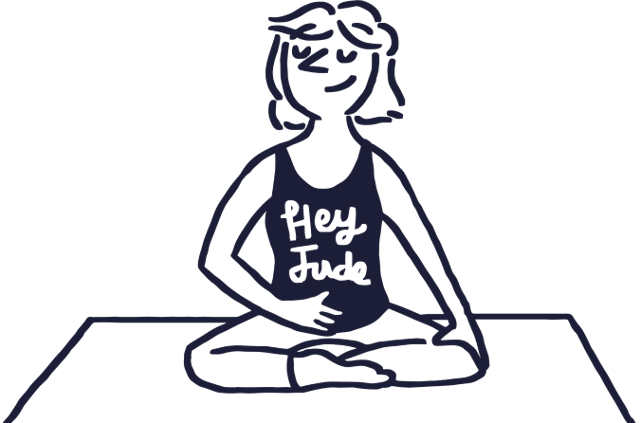Get FREE delivery when you Subscribe
Pelvic Floor Gone POP?! How to Manage Prolapse
Pelvic organ prolapse (POP) is a common condition experienced by many women in our lifetime. Because there is so much stigma around women’s health, prolapse isn’t often discussed, and the underlying causes often misunderstood.
POP occurs when the muscles and connective tissues supporting our pelvic organs weaken, allowing one or more organs, such as the bladder, uterus, or rectum, to move from their usual position and press against the vaginal walls. This can affect bladder function significantly, causing a range of issues from difficulty emptying to urinary incontinence. While it’s often linked to pregnancy and childbirth, prolapse can happen to many of us for a variety of reasons.
How common is POP for women?
Prolapse is far more common than many of us realise. Recent statistics show that about 50% of us in the UK experience some degree of pelvic organ prolapse during our lives, with 40% of women over 40 suffering with POP. Of those, approximately 10-20% seek medical treatment due to significant symptoms affecting their daily lives.
The condition is especially prevalent as we age, with menopausal and hormonal changes being a significant contributing factor. Recognising early symptoms and seeking treatment is important to manage the condition effectively.
How Prolapse Happens
The pelvic floor is a group of muscles and connective tissues that act as a sling, or ‘hammock’. These tissues hold organs such as the bladder, uterus, and rectum in place. As we get older, or have children, this support system can weaken due to damage during childbirth, or strength lost due to age. When the pelvic floor can no longer bear the ‘load’, the affected organs may drop, or prolapse, into the vaginal space.
For example, when the bladder descends, a condition known as a cystocele, the structural change can lead to symptoms such as a feeling of heaviness and pressure, or the urge to pee more frequently. In some cases, as one organ ‘drops’, it can push against others, causing further issues.
The severity of a prolapse ranges from mild, where it causes little to no discomfort, to severe, where it visibly protrudes from the vaginal opening.
Causes of Prolapse Beyond Pregnancy
For many women, POP occurs during pregnancy or childbirth, but as we age the pelvic floor weakens and can cause prolapse to occur. This is due to a decline in hormones - especially oestrogen - as we navigate menopause, and the tissues and muscles in our pelvis naturally lose elasticity and strength.
Other factors that can cause prolapse are chronic strain caused by constipation, persistent coughing, or lifting heavy objects can put additional pressure on the pelvic organs, increasing the risk of prolapse.
Genetics can further predispose some of us to weaker connective tissues, even if we’ve not experienced the usual risk factors such as childbirth.
Recognising the Symptoms
Prolapse symptoms vary depending on severity but often include:
A feeling of heaviness or pressure in the pelvic area.
A bulge or lump in the vagina, sometimes visible or felt when wiping.
Difficulty urinating or fully emptying the bladder.
Urinary leaks, especially with movement or coughing.
Discomfort during intercourse.
Bladder issues are particularly prevalent with prolapse. These may include difficulty emptying the bladder fully, a frequent urge to urinate, or episodes of urinary leakage, especially when coughing or sneezing. Sexual discomfort or a feeling of reduced sensation during intercourse may be the first indication of a problem for you, too. It’s important to know that prolapse can be managed or treated effectively.
How can prolapse be managed and treated?
For those of us with mild or moderate prolapse, simple lifestyle changes and management techniques can make a big difference. Pelvic floor exercises can help to strengthen the muscles that support the pelvic organs, reduce symptoms and potentially prevent further progression of the prolapse. Speaking to your GP is important in the first instance, and they may be able to refer you to a pelvic health physiotherapist.
Vaginal pessaries are small medical devices inserted into the vagina to provide structural support. These come in various shapes and sizes and can be fitted by a healthcare professional to suit our individual needs. Pessaries are a non-surgical solution that can improve comfort and restore confidence in day-to-day life.
For severe or persistent cases of prolapse surgery may be necessary. This typically involves repairing the weakened tissues to restore the organs to their correct position.
Jude’s clinically proven supplements give you better bladder and pelvic floor control, helping you sleep through the night and regain the freedom to live life on your own terms. With just one capsule morning and night, you'll have relief from need-to-go urgency in just 12 weeks.
320 City Rd, London EC1V 2NZ. VAT #376988124Site by HeyHiHello
Sign up for our free newsletter
